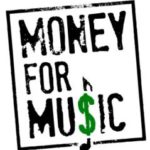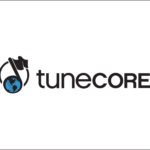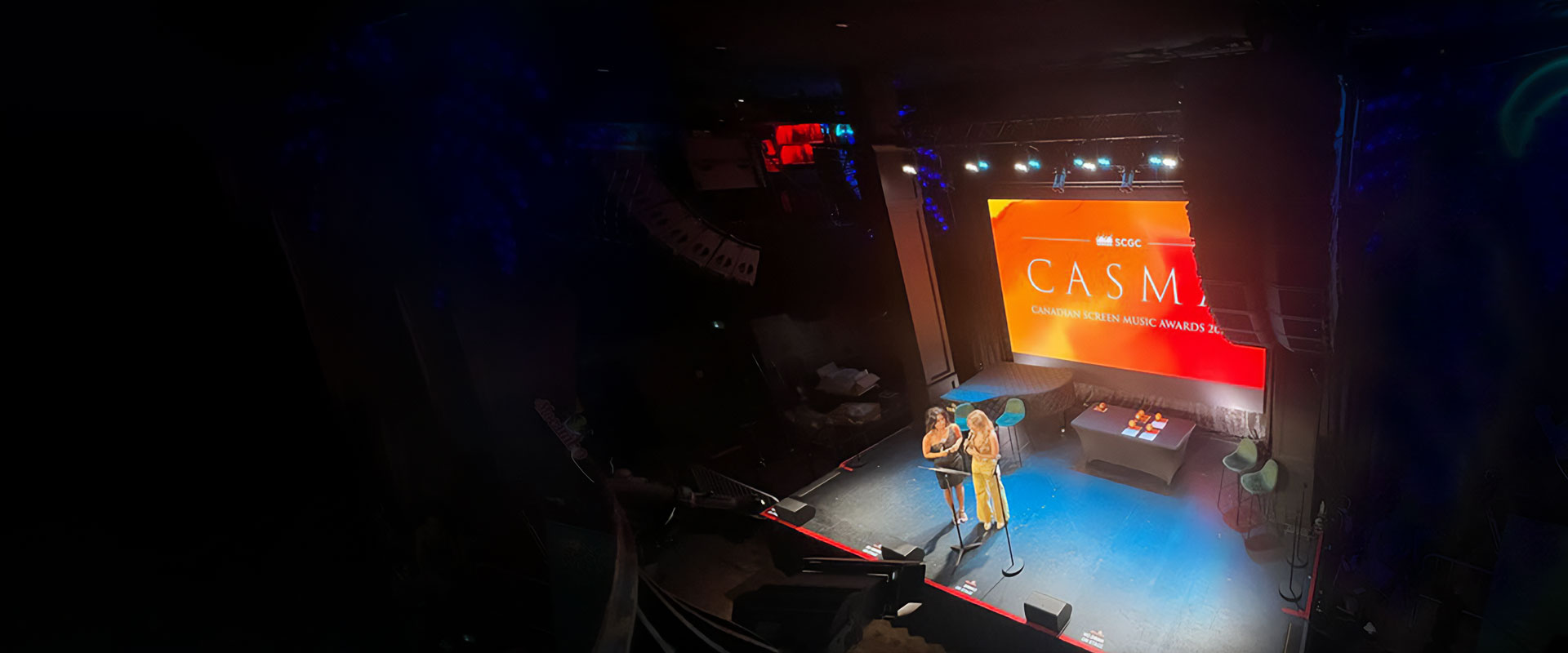[vc_row][vc_column][vc_column_text]
[/vc_column_text][/vc_column][/vc_row][vc_row][vc_column width=”1/4″][vc_single_image image=”9444″ alignment=”right”][vc_single_image image=”9451″ alignment=”right”][vc_single_image image=”9456″ alignment=”right”][vc_single_image image=”9447″ alignment=”right”][vc_single_image image=”9453″ alignment=”right”][/vc_column][vc_column width=”3/4″][vc_column_text]Rose Bolton was a guest speaker at the Toronto Ravel discussing ‘Anthropocene: The Human Epoch’
Amin Bhatia gave a live interview with Paul Stillwell as a part of the presentation
‘Surrounded by Analog – The 5.1 Remix of The Interstellar Suite’ at the Toronto Sound Festival.
Erica Procunier was on Whistler Film Festival’s ‘Women on Top: Making Media Equitable’ panel.
Suad Bushnaq was a guest speaker at the Toronto Ravel. She spoke about her score for the film ‘The Borrowed Dress’ and the creative process behind transforming it into an orchestral work for the stage.
Erica Procunier attended ‘Berlinale Talents’ in Berlin.
Stéphanie Hamelin Tomala attended the ‘Los Angeles Film Conducting Intensive for Film Composers’.
Mychael Danna joined us for an an “Ask Me Anything” conversation. Adrian Ellis moderated the live stream.
Paul Novotny, Amin Bhatia, Ryner Stoetzer, and John Welsman attended the DM@X conference.
Adrian Ellis held a live scoring session for the film ‘Last Call’ and recorded the score in a single take.
Charlie Finlay and Elizabeth Hannan gave an SCGC Open House at York University for our Educational Outreach Program.
Our Women Composer Advisory Council hosted ‘Interviewing 101 for Composers’. Jen Gorman (GormanPR) walked through PR for composers.[/vc_column_text][/vc_column][/vc_row][vc_row][vc_column width=”1/4″][vc_single_image image=”9595″ alignment=”right”][/vc_column][vc_column width=”3/4″][vc_column_text]
AWARDS & RECOGNITION
Jeff Morrow, Mychael Danna, and Suad Bushnaq were nominated for the 2018 Hollywood Music in Media Awards.
Benjamin Goldman scored ‘Safe Space’ & was selected a finalist at Tropfest 2019 and won ‘Best Score’.
Stephanie Copeland won ‘Best Score’ at the Other Worlds Austin Film Fest for “I’ll Take Your Dead”.
Stephanie Hamelin Tomala was the winner of Golden Hornet’s 5th annual String Quartet Smackdown.[/vc_column_text][/vc_column][/vc_row][vc_row][vc_column width=”1/4″][vc_single_image image=”9446″ alignment=”right”][vc_single_image image=”9449″ alignment=”right”][vc_single_image image=”9448″ alignment=”right”][vc_single_image image=”9450″ alignment=”right”][/vc_column][vc_column width=”3/4″][vc_column_text]
CANADIAN SCREEN AWARDS NOMINEES
TV – Best Original Music, Fiction nominees:
Robert Carli – Murdoch Mysteries
Todor Kobakov – Ransom
Todor Kobakov – Cardinal
Trevor Morris – Vikings
Amin Bhatia and Ari Posner – Anne with an E
TV – Best Original Music, Non-Fiction nominees:
Darren Fung – Equuis: Story of the Horse
Mark Korven – The Kingdom: How Fungi Made our World
Phil Strong with Laurel MacDonald – You are Here: A Come From Away Story
TV – Best Original Music, Animation nominees:
Steffan Andrews – Cloudy with a Chance of Meatballs
Derek Treffry and Greg Fisher – Mother Nature is Trying to Kill You
Neil Parfitt – Ranger Rob
Daniel Ingram and Jonathan Evans – Esme and Roy[/vc_column_text][/vc_column][/vc_row][vc_row][vc_column width=”1/4″][vc_single_image image=”9455″ alignment=”right”][vc_single_image image=”9068″ alignment=”right”][vc_single_image image=”9516″ alignment=”right”][vc_single_image image=”9454″ add_caption=”yes” alignment=”right”][/vc_column][vc_column width=”3/4″][vc_column_text]
PREMIERIES & SCREENINGS
Season 2 of ‘Little Dog’ premiered on CBC. Erica Procunier scored the series and Elizabeth Hannan was her assistant.
Darren Fung scored the film ‘Equus – Story of the Horse’ which aired on Nature PBS.
Suad Bushnaq’s piece Ghadan ‘Tomorrow’ was performed by the Pembroke Symphony Orchestra.
David Federman scored ‘Haru’s New Year’. The film screened at the Toronto Reel Asian International Film Festival.
David Federman scored ‘Esmerelda’s Castle’. The film screened at the Vancouver Short Film Festival.
Rose Bolton scored “Anthropocene: The Human Epoch” which screened at the Sundance Film Festival.
Lesley Barber scored ‘Late Night’ which screened at the Sundance Film Festival.[/vc_column_text][/vc_column][/vc_row][vc_row][vc_column width=”1/4″][vc_single_image image=”9597″ alignment=”right”][/vc_column][vc_column width=”3/4″][vc_column_text]
OTHER RELEASES & NEWS
Maxime Goulet’s Video Game Symphony was performed by the Orchestre Symphonique de Québec.
Erica Procunier was featured on the podcast ‘Women on Screen, Out Loud: The Podcast Essays’.
Jake Butineau scored the game ‘Super Animal Royale’. The game and soundtrack were both released.-
David Federman’s scored ‘John Lives Again’. The film was released on Amazon Prime Video.
Suad Bushnaq’s music was played on Radio-Canada’s station ICI Musique, in a one hour episode of Notes de Voyage.
Janal Bechthold wrote a guest post for Women In Film and Television Toronto’s blog.
Janal Bechthold, Lesley Barber, and Lolita Ritmanis were featured on CBC The National talking about female screen composers.
Chad Blain was featured on the Alberta Filmmakers Podcast.
Sarah Slean hosted TEMPO (a CBC radio program).
Peter Chapman wrote a feature for the Native Instruments blog.
[/vc_column_text][/vc_column][/vc_row][vc_row][vc_column width=”1/4″][vc_single_image image=”1303″ alignment=”right”][/vc_column][vc_column width=”3/4″][vc_column_text]
Editor’s Pick
with Virginia Kilbertus
Most of what’s in this piece has been published in various trade sources over the past couple of years, but what really prompts putting it together as a single piece was Nora Germain’s article You Have No Idea How F****d Streaming Really Is, published on Medium in 2018.
The-business-model-that-makes-streaming-a-black-hole-for-musicians
The Copyright Royalty Board in the US has published a lengthy statement outlining its revamp of the mechanical royalty rates to be paid by companies that make copies of songs Stateside.
US-copyright-royalty-board-confirms-44-increase-in-streaming-royalty-on-songs/
Google CEO Sundar Pichai said that YouTube now counts almost 2 billion monthly logged-in users — a modest 200 million user increase over the 1.9 billion monthly users that YouTube reported last quarter, per Fortune.
Youtube-reaches-2-billion-monthly-users/
The European Parliament and Council agreed on the final text of the EU Copyright Directive. The full package will now go to the European Parliament for a final vote, which is expected to take place in March or April 2019.
EU-reaches-deal-on-article-13-and-other-copyright-reform-plans
More than just a missed opportunity to lend flinty female heroes a female musical voice, recent announcements were simply the latest examples of women being sorely unheard in film music.
Breaking Barriers in movies/female-film-composers
The Music Modernization Act (MMA), which passed both Houses of Congress unanimously, is a new law that brings music copyrights into the digital age, modifying the already outdated copyright laws that were conceived in the 1990s before Napster, iTunes, and Spotify came along to upset the old music industry order.
a-look-at-the-music-modernization-act/
“She Is The Music” is an industry-wide initiative to increase equality, inclusivity and opportunity for women in music. ASCAP supports She Is The Music and wants to let female members know that the She Is The Music Database — the industry’s official, global database of women working across the music industry — is launching soon.
‘She Is The Music’ revolution
New Gear Alert: wa-251-tube-condenser-microphone[/vc_column_text][vc_column_text]
*************************
We welcome your suggestions for story ideas!
Email the Guild: info@screencomposers.ca
Cue Notes:
Virginia Kilbertus: Editor
Nicholas Stirling: Layout, Web
Tonya Dedrick: Admin
![]() [/vc_column_text][/vc_column][/vc_row][vc_row][vc_column][/vc_column][/vc_row][vc_row][vc_column][/vc_column][/vc_row]
[/vc_column_text][/vc_column][/vc_row][vc_row][vc_column][/vc_column][/vc_row][vc_row][vc_column][/vc_column][/vc_row]


 by John Welsman, President
by John Welsman, President • Continuing to research and move forward the Canadian Creators Mechanism (ISP levy) proposal as a potential add on
• Continuing to research and move forward the Canadian Creators Mechanism (ISP levy) proposal as a potential add on • Better understanding and exploring the pros/cons of current and future alternatives to current royalty regimes such as blockchain technology. What can it do and what can’t it do? Can it be adopted by the CMOs of the world?
• Better understanding and exploring the pros/cons of current and future alternatives to current royalty regimes such as blockchain technology. What can it do and what can’t it do? Can it be adopted by the CMOs of the world? We all hope that there will be technological solutions for the challenges we face. But as one of our committee members observed, there are endlessly new ways to address the problems we’re facing technologically, and it’s a risky business no matter what route we choose to go. The landscape is changing SO fast. To use the hockey analogy, we can do our research, have a smart game plan to follow, try to predict where the puck’s going to be, and still be wrong.
We all hope that there will be technological solutions for the challenges we face. But as one of our committee members observed, there are endlessly new ways to address the problems we’re facing technologically, and it’s a risky business no matter what route we choose to go. The landscape is changing SO fast. To use the hockey analogy, we can do our research, have a smart game plan to follow, try to predict where the puck’s going to be, and still be wrong. By Brock Hewitt
By Brock Hewitt as film composers. Good film music can standalone from the film it is associated with and when we begin to look at ourselves as artists, as well as film composers, we can take advantage of the revenue that streaming platforms have to offer by uploading our music catalogues to them.
as film composers. Good film music can standalone from the film it is associated with and when we begin to look at ourselves as artists, as well as film composers, we can take advantage of the revenue that streaming platforms have to offer by uploading our music catalogues to them. players/soundtrack artists have tens of millions of streams on these platforms. The potential is there, so we just need to figure out how to navigate these new waters for our benefit. The glory of being an indie artist on these platforms is that there is no record company acting as an intermediary between you and your streaming revenue. By far the best service for getting your music onto all streaming sites is Distrokid, where you pay a yearly subscription fee for around $19.99. This allows you to upload unlimited music under one artist name, with options for multiple artist names as well, depending on your needs. There are other sites such as Tunecore that are pioneers in the field of music distribution but are a little more expensive, usually charging $10.99 per initial single to $35.99 per initial album. After you pay that yearly fee, the distributor will collect all of the revenue for you from streaming sites; they even collect your YouTube monetization and any revenue from your music being used on Facebook and Instagram, (which is a new feature). Monetization is everything nowadays – you even see Soundcloud recently hopping on board to pay its pro artists. The game
players/soundtrack artists have tens of millions of streams on these platforms. The potential is there, so we just need to figure out how to navigate these new waters for our benefit. The glory of being an indie artist on these platforms is that there is no record company acting as an intermediary between you and your streaming revenue. By far the best service for getting your music onto all streaming sites is Distrokid, where you pay a yearly subscription fee for around $19.99. This allows you to upload unlimited music under one artist name, with options for multiple artist names as well, depending on your needs. There are other sites such as Tunecore that are pioneers in the field of music distribution but are a little more expensive, usually charging $10.99 per initial single to $35.99 per initial album. After you pay that yearly fee, the distributor will collect all of the revenue for you from streaming sites; they even collect your YouTube monetization and any revenue from your music being used on Facebook and Instagram, (which is a new feature). Monetization is everything nowadays – you even see Soundcloud recently hopping on board to pay its pro artists. The game  is changing. These distribution companies are acting as distributors for your music, as well as collecting your mechanicals and monetization from various social media platforms. Essentially they are also acting as performance rights organizations because streaming sites are the new radio. This gives us huge potential to make passive income through new platforms as film composers.
is changing. These distribution companies are acting as distributors for your music, as well as collecting your mechanicals and monetization from various social media platforms. Essentially they are also acting as performance rights organizations because streaming sites are the new radio. This gives us huge potential to make passive income through new platforms as film composers. depend on the interests of the user). It will also place the song in other similar algorithmic playlists. Through Spotify for Artists (the backend account that helps artists customize what their Spotify page looks like) we can now actually submit our upcoming releases to Spotify’s editorial team for playlist placement consideration. All of this is free to do. Spotify for Artists also just announced a beta where you can upload your music for free without going through other distributors, so that is also an interesting opportunity to look into.
depend on the interests of the user). It will also place the song in other similar algorithmic playlists. Through Spotify for Artists (the backend account that helps artists customize what their Spotify page looks like) we can now actually submit our upcoming releases to Spotify’s editorial team for playlist placement consideration. All of this is free to do. Spotify for Artists also just announced a beta where you can upload your music for free without going through other distributors, so that is also an interesting opportunity to look into. massive music channels on YouTube that are film music driven – epic music, ambient music, instrumental music and more. One way to grow your audience is to reach out to these channels to see if they will feature some of your music, then with your distribution company collecting the monetization on the backend this can amount to great passive income for you as an artist. If you get your music on popular YouTube channels, lots of people will be seeing your music and the majority of these music driven channels will post all of your other streaming and social media links so that people can go listen to your music on other platforms. On YouTube, generally only one party can collect monetization from a specific video, so if someone uploads your music without your permission your distribution company will collect the monetization from that video. The YouTuber won’t be getting paid, but you will. You can also whitelist videos if you want through Tunecore and most other distributors. This gives YouTube channels permission to use your music, and allows them to collect the
massive music channels on YouTube that are film music driven – epic music, ambient music, instrumental music and more. One way to grow your audience is to reach out to these channels to see if they will feature some of your music, then with your distribution company collecting the monetization on the backend this can amount to great passive income for you as an artist. If you get your music on popular YouTube channels, lots of people will be seeing your music and the majority of these music driven channels will post all of your other streaming and social media links so that people can go listen to your music on other platforms. On YouTube, generally only one party can collect monetization from a specific video, so if someone uploads your music without your permission your distribution company will collect the monetization from that video. The YouTuber won’t be getting paid, but you will. You can also whitelist videos if you want through Tunecore and most other distributors. This gives YouTube channels permission to use your music, and allows them to collect the  monetization revenue from their video. The beauty of it is that it is totally up to you to collect monetization or not. You do not need to worry about people using your music anymore without your permission. The more the merrier because if you use a distribution service like Tunecore or Distrokid, etc., you will get paid.
monetization revenue from their video. The beauty of it is that it is totally up to you to collect monetization or not. You do not need to worry about people using your music anymore without your permission. The more the merrier because if you use a distribution service like Tunecore or Distrokid, etc., you will get paid. and an audience to present your new releases to. It is the modern way to market yourself and show your music to the world like never before.
and an audience to present your new releases to. It is the modern way to market yourself and show your music to the world like never before.







